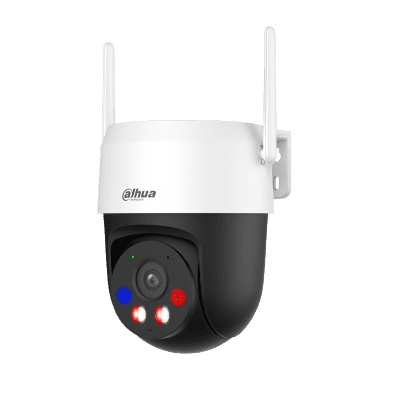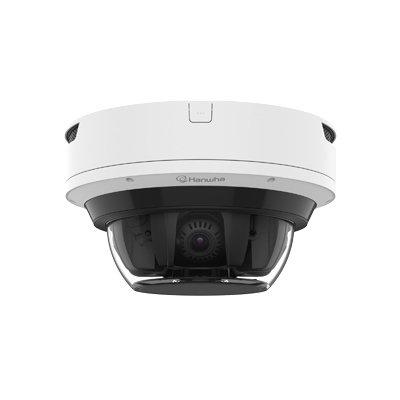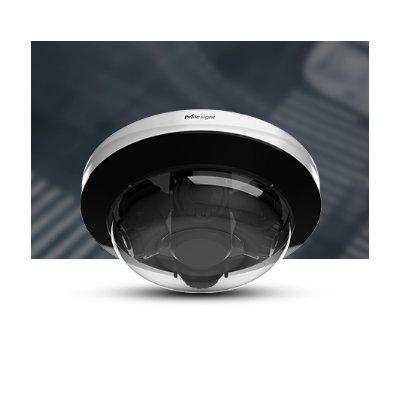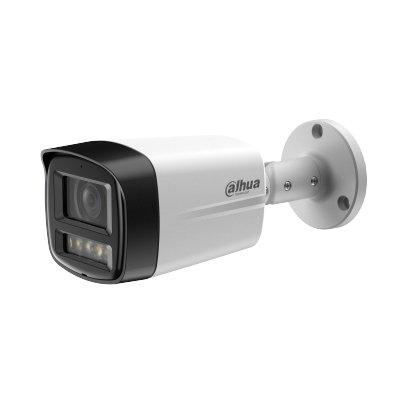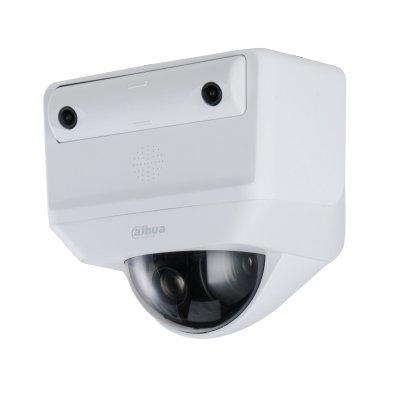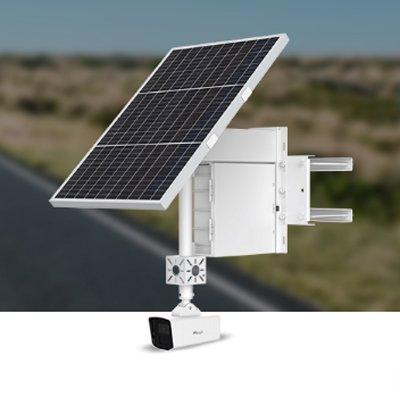IP surveillance camera applications

Dickensa 27, a modern residential complex in Warsaw, Poland, sought to enhance its security, communication, and convenience for residents through advanced intercom solutions. By implementing DNAKE’s smart intercom system, the building now features top-tier security integration, seamless communication, and an elevated user experience. With DNAKE, Dickensa 27 can offer its residents peace of mind and easy access control. DNAKE smart intercom system DNAKE smart intercom system was smoothly integrated with existing security features DNAKE smart intercom system was smoothly integrated with existing security features, providing an intuitive and reliable communication platform. Facial recognition technology and video monitoring ensure that only authorised individuals enter the building, while the easy-to-use interface helps to streamline security operations. Residents now enjoy quick, secure access to the building and can easily manage guest access remotely. List of installed products S615 4.3” Facial Recognition Android Door Station S213K SIP Video Door Station with Keypad E211 Audio Indoor Monitor 902C-A Master Station S212 One-button SIP Video Door Station H618 10.1" Android 10 Indoor Monitor E416 7" Android 10 Indoor Monitor Solution benefits Advanced security With facial recognition and video access control, Dickensa 27 is better protected, allowing residents to feel safe and secure. Convenient communication The system enables clear, direct communication between residents, building staff, and visitors, improving day-to-day interactions. Remote access control Residents can manage guest entry and access points remotely using the DNAKE Smart Pro App, providing greater flexibility and convenience.
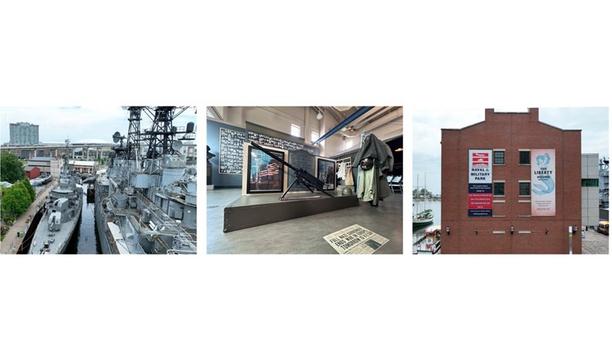
The Buffalo and Erie County Naval & Military Park, in Buffalo, N.Y., has a clear mission based on four pillars: to honour all veterans, educate the public about the sacrifices made by those who serve, inspire a sense of patriotism and appreciation for those protecting Americans’ rights and freedoms, and preserve the artifacts entrusted to the Park’s care. Buffalo Park The Park regularly hosts events and takes visitors inside America’s military history with in-depth tours of decommissioned naval vessels, exhibits, and displays. The team’s goal is to highlight its monuments and artifacts while providing a welcoming and secure environment for visitors. A key challenge was the Park’s large open and unfenced grounds, allowing the public access to the facilities at any time of the day or night. Challenge Provide a welcoming and secure environment for visitors and deter criminal activity within the park. Achieve 360° coverage across all interior and exterior areas without using cables, which would have made the project cost-prohibitive. Design a wireless surveillance system to cover the park’s large areas of open ground. Surveillance system installation “We had begun to notice an increased rate of delinquent incidents happening during the day and off hours, including graffiti placed on the artifacts and monuments,” said Paul Marzello, Sr., President & CEO, Buffalo and Erie County Naval & Military Park. The Park engaged Mario Rodriguez, president of Forseti Protection Group, and Erik Schiefer, account executive at Seibold Security, to design and install a surveillance system based on Hanwha Vision’s multi-directional and AI-equipped cameras. “When we did our research, we found that Hanwha Vision certainly was a pioneer in the industry,” said Marzello. Factors to consider From a risk and public safety perspective, the goal from the start was to maintain an open and welcoming environment “We conducted a site survey, considering the line of sight, the cameras’ capabilities, the density of groups of visitors and where they tend to gravitate, and criminal history in the Park,” said Bill Abbott, Director of Operations, Buffalo and Erie County Naval & Military Park. “Those were all factors in how we determined the layout. We wanted to make sure that we had the right coverage.” From a risk and public safety perspective, the goal from the start was maintaining an open and welcoming environment while keeping public safety top-of-mind. Solution Install a Hanwha Vision surveillance system comprising multidirectional and AI cameras. 4K multi-sensor cameras Schiefer has extensive experience with Hanwha cameras from previous projects. “Their new 4K multi-sensor cameras are first class and as far as 360° coverage, with the ability to monitor several areas, Hanwha was the first choice,” he said. The ability to view 360° coverage from one camera that essentially is divided into multiple sectors was significant. “That gives us full visibility and lets us be open and welcoming while keeping out of the public’s way without being imposing or intimidating,” Rodriguez said. Ease of playback Schiefer added that one key benefit of using the Hanwha 360° cameras to cover such a large area Schiefer added that one key benefit of using the Hanwha 360° cameras to cover such a large area is the ease of playing back footage and monitoring activity after the fact. “They are broken out into four sensors, so you don’t necessarily have to go back and look through a large amount of footage,” he said. “You can pick the area you're looking for, go directly to that sensor within the camera that we have in that area, and you can pull footage much easier that way.” Cable cost and distance One challenge the team encountered during the design phase was running a cable for a project of this scale. “The cost to run buried cable at such long distances with switches would have rendered this project almost completely impossible,” Schiefer said. “We incorporated wireless network cards into the poles around the park and all the cameras feed directly back to the Hanwha NVR without using any sort of cabling.” NDAA compliant solutions The Park’s priorities included the use of National Defense Authorization Act (NDAA) compliant solutions and having more streamlined communication with law enforcement. “We wanted to make sure that the cameras themselves were secure,” said Abbott. “The cameras also needed to be used to positively identify someone who had done something, either damage or acts of violence. In the past, we could not effectively supply law enforcement with usable information to identify a suspect." Use of AI in cameras The Hanwha cameras’ use of AI plays a key role in delivering those capabilities "We've now changed that with the quality of cameras that we're using. We can share footage and data to produce an outcome that's satisfying to everybody as far as finding a culprit and holding them accountable." The Hanwha cameras’ use of AI plays a key role in delivering those capabilities. “You can use key identifiers, whether it's the colour of someone's shirt, if they're wearing a backpack, or there's some physical feature that we can then go through and locate that person through the system,” Abbott said. Sense of security “We absolutely would see an increase in the value and number of cameras that we use,” said Abbott. Marzello added, “From an operations standpoint, we feel a greater sense of security knowing the cameras are there and will help us identify activities that we can hopefully prevent. This system meets our needs today and will also be able to grow with us.” Results Ability to effectively monitor all park areas and more effective forensic searches. Reduction in on-premise incidents. Streamlined collaboration with law enforcement agencies.
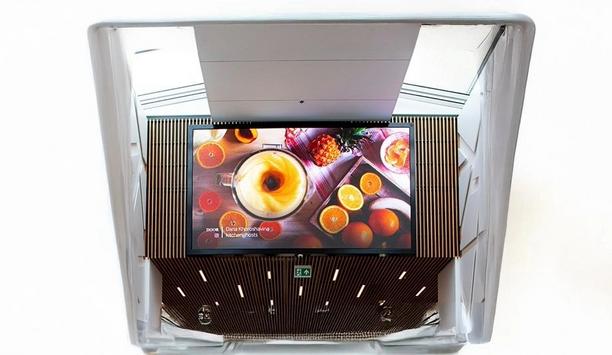
About a year and a half ago, Peter de Jong introduced Dahua to Fred Koks, General Manager of KITT Engineering. Since then, Dahua, KITT Engineering, and Ocean Outdoor have completed five joint projects. Follow-up appointments for the next two projects are already scheduled. Looking back "Let's see what happens" was Fred's reaction when introduced to Dahua. ''We evaluate our portfolio with suppliers every year,'' he explained. "We have to. So much is changing and new technology is developing incredibly fast. You have to keep up." He knows better than anyone how mobile the market is. "Among suppliers of LED screens, there is a constant battle for market position and new technology. We all know the big providers and the market pioneers. But it is not necessarily that they are also at the forefront of technology." Working in collaboration Erwin van Domselaar, Operations & Project Manager at Ocean Outdoor, says his company dares to blindly trust the expertise of Koks and his people when choosing a particular type of LED screen. "KITT Engineering is our technical supplier. They are very good at distinguishing good products from bad ones, and we trust them completely. When they have a product they see a future in, they discuss it with us to see if we can take on a project together with it." Shopping centre - Koperwiek In Dahua's case, that first project is a screen in a shopping centre called Koperwiek – an indoor shopping centre with more than a hundred fashion-related shops – located in Capelle aan den Ijssel. "That was a relatively small project," Erwin recalls. "The screen was not too big. But the initial learnings and experience with the screen were very good before we started. And the installation itself went off without a hitch. Exactly what we expected from this product." Shopping centre - Sterrenburg Soon, a second project was launched. This time in a shopping centre called Sterrenburg in Dordrecht. "Here, not everything went smoothly right away. Not regarding the screen, but its coincidence with the shopping centre's renovation. They had just finished." "All the walls had been neatly plastered and at that moment we asked if a new cable could be drawn. Fortunately, all this was eventually dealt with and solved in a very pleasant cooperation with the project developer, but it took some time." Pure craftsmanship The third and fourth projects are true masterpieces. In Hoofddorp, KITT Engineering installed a corner screen. "A unique screen for us," says Erwin. "It is the first screen that goes around a corner. It is half a meter that goes around the corner, fitting in super nicely with the surroundings." "On paper, a huge screen of forty square meters, but when you stand there, you don't notice it because it blends in so well with the surroundings. We are always looking for something new and surprising. And a screen that turns around the corner offers a lot of new possibilities. For example, in terms of 3D content." The screen turns around the corner Fred adds, "The screen doesn't just go around the corner, it goes around the corner seamlessly. KITT is always trying to bring novelties forward so we've had corner screens before. But that was in art projects and things like that where requirements are a lot lower." "In the process, we were able to try out various techniques and we also found out that the products we had at our disposal at that time were not one hundred percent ready." Cold corner "Then Dahua came up with a prototype, we were very pleased with the 'cold corner' as we call it. It is LED on LED, without a seam." To understand how clever this feat of engineering is, it's worth realising that the margin you have to make the image seamless is the space between two LEDs. Millimeter work, on a length of ten by five meters. Zuidplein shopping centre "The fourth project was placing a screen in the atrium of Zuidplein shopping centre in Rotterdam," Peter says. "The screen was placed against a glass elevator." "When you see that, [it is] not normal the way it came together. You don't see a cable or anything. Fantastic." Westfield Mall The fifth project collaboration between Dahua, KITT Engineering, and Ocean Outdoor is an LED display screen in Westfield Mall in the Netherlands. 24/7 remote system monitoring In addition to the regular LED screen and the driving system, a screen control and monitoring system was also developed to monitor the primary system at every point. “We want to see remotely how our assets in the country are doing," Fred explains. From the video player to dysfunctional LEDs, everything can be monitored remotely. For instance, it prevents the light intensity from being too high. Something that can have major consequences in outdoor advertising.

In Neuss, Düsseldorf, and Meerbusch, ISR (International School on the Rhine) offers an excellent international education from kindergarten to grade 12. The teachers at ISR prepare students for the world's most prestigious universities, placing great emphasis not only on academic excellence, but also on positive character development and the teaching of values. Since 2022, ISR has also been using the DeepHub whiteboard for this purpose. Test phase from 2022 "The modernisation of classrooms and the additional digitalisation of teaching methods are important concerns for us," explains Peter Soliman, Managing Partner of ISR, adding "Dahua's DeepHub whiteboard offers us versatile functionalities and the perfect solution for our needs." Mohammed Aloof, Head of IT at ISR, adds, "We have already deployed the DeepHub whiteboards in some classrooms since 2022. The feedback we have received from teachers and our students has been extremely positive. Therefore, we have decided to install a more modern whiteboard in every classroom for even better learning conditions." Improved visibility and interaction The new whiteboards have significantly improved the visibility of the learning content. Students can read the text on the screen very well from all angles of the classroom. And thanks to the optimised brightness of the screen, classrooms no longer need to be darkened. Whiteboard function "Being able to add handwritten information to documents on the whiteboard adds a lot of value for me," said Bianca McLeod, a Teacher at ISR and Head of Secondary Education. She adds, "The sensitivity here is just right. For example, I can also call up pre-made geometric shapes and use them for lessons. The whiteboard function allows me to save the pages afterward and call them up again at any time." DeepHub Bianca McLeod continues, "The students can save the learning content by scanning a QR code." She said, "Our teachers can also upload and use extensive materials and teaching aids on DeepHub, which is very practical and accommodates an increasingly paperless - and thus environmentally friendly - aspiration at ISR." Innovative and interactive teaching Classroom interaction is also further encouraged with the DeepHub. For example, teachers encourage students to participate directly via the whiteboard and answer the quiz displayed on the DeepHub screen. This two-way sharing system between DeepHub and the students' tablets is particularly practical and allows for innovative and interactive teaching. Benefits "After almost a year of experience with DeepHub, I have noticed a positive change in my teaching," Ms McLeod points out. She adds, "The students have become more engaged and even more proactive. We are convinced that further upgrading of the screens will bring even more benefits!" Administration work is simplified The Head of the IT department at ISR, Mr. Aloof, is also satisfied, "The Dahua DeepHub makes administration very easy." He adds, "A highly modern DeepHub device now replaces the old equipment, projector, speakers, microphone, countless cables, and much more. It makes the management work much easier." Clever all-in-one solution The DeepHub whiteboard ensures excellent presentation experiences and creative ideation by allowing participants to fully concentrate on the task at hand without having to worry about technical aspects. In doing so, its 4K 3840×2160 touch UHD display with a screen diagonal of 65 to 98 inches and a 178° viewing angle, combined with anti-glare technology, ensures a clear, more legible display, sharp images, and vivid colours. Interactive features In training situations and the classroom, knowledge can be conveyed intuitively and with fun One-touch projection from up to four terminals via the USB wireless screen sharing dongle or eshare software simplifies collaborative presentations. In training situations and the classroom, knowledge can be conveyed intuitively and with fun in this way. At the same time, as part of a quality control process, other teachers, as well as academic coordinators, have the opportunity to participate in lessons from any location with internet access, even if they are not on-site, thanks to the interactive features. High-quality, interactive touchscreen The touch-active screen supports an optimal writing experience: Smooth writing works virtually in real-time with less than ten ms latency. Responses to touch and support for simultaneous writing vary depending on the application. The integrated camera (up to 5MP) and up to eight microphones enable powerful video conferencing. Thanks to its high audio and video quality, the Dahua interactive whiteboard is also suitable for seminars, business negotiations, and training. Compatibility The integrated Android as well as an optional Windows operating system ensures full compatibility Of course, comprehensive compatibility is also taken care of: the pre-installed Android and an optional Windows operating system enable the use of a wide range of productivity tools. This makes perfect sense, as dual operating systems offer a wide range of apps and software. The device is also compatible with popular third-party video conferencing software. Its competitive price and a three-year warranty ensure a high return on investment. In addition, the integrated Android, as well as an optional Windows operating system ensure full compatibility with numerous teaching and learning programs. Conclusion "ISR has many Dahua products in use. In the past, our security system, but now also state-of-the-art interactive whiteboard technology in all classrooms. We are grateful for the support from a global leader in technology and IoT solutions," explains Peter Soliman. He concludes, "I am convinced that the new technology will add great value to ISR's students."
Global Security Exchange (GSX) 2025 news
ASIS International, the world’s largest association for security management professionals, has announced its programming lineup for Global Security Exchange (GSX) 2025 with in-per...






